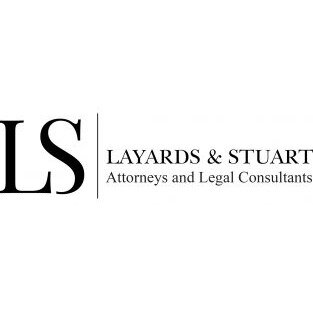Best Public-Private Partnerships (PPP) Lawyers in Sri Lanka
Share your needs with us, get contacted by law firms.
Free. Takes 2 min.
Or refine your search by selecting a city:
List of the best lawyers in Sri Lanka
About Public-Private Partnerships (PPP) Law in Sri Lanka
Public-Private Partnerships (PPP) are collaborative ventures between government authorities and private sector entities. In Sri Lanka, PPPs have become a key tool for infrastructure development, economic growth, and service delivery. The aim is to leverage private investment, technology, and expertise to address public needs while sharing risks and rewards. Over the last decade, Sri Lanka has increasingly relied on PPPs in sectors such as transportation, energy, health care, water supply, and education. The regulatory framework for PPPs in Sri Lanka continues to evolve, with various guidelines and policies shaping how such projects are structured, implemented, and monitored.
Why You May Need a Lawyer
Entering into a PPP can be a complex process involving numerous legal, financial, and regulatory considerations. You may need legal help for the following common reasons:
- Reviewing and negotiating PPP contracts and concession agreements
- Ensuring compliance with local laws, regulations, and policies
- Protecting your interests during bidding and tendering processes
- Advising on risk allocation between public and private partners
- Handling disputes, claims, and breach of contract issues
- Assisting with land acquisition and environmental approvals
- Structuring project finance and investment arrangements
- Navigating issues of transparency, procurement, and anti-corruption measures
- Guiding public officers on procedural and governance matters
- Advising on tax implications, incentives, and compliance
A qualified lawyer with PPP experience can help avoid pitfalls, clarify obligations, and ensure a successful partnership.
Local Laws Overview
Sri Lanka does not have a single comprehensive PPP Act. Instead, PPPs are shaped by a combination of sector-specific regulations, government policies, and international best practices. Key points to note include:
- The National Policy on Public-Private Partnerships (2016) sets out the general principles and objectives for PPPs in Sri Lanka.
- The Ministry of Finance, through the PPP Unit, plays a central role in approving, guiding, and monitoring major PPP projects.
- The Public Contracts Act No. 3 of 1987 governs many aspects of public procurement and contractual arrangements.
- Sector-specific laws (such as for energy, ports, highways, and water) may specify requirements for PPPs, including tendering processes, approvals, and dispute resolution mechanisms.
- Land acquisition is governed by the Land Acquisition Act and may involve additional environmental approvals and stakeholder consultations.
- Foreign investment in PPPs is regulated by the Board of Investment (BOI) of Sri Lanka, with specific criteria for ownership, repatriation, and tax incentives.
- Dispute resolution often relies on arbitration, either locally or at international forums, as specified in project agreements.
- Transparency and anti-corruption standards are vital, demanding compliance with Sri Lanka’s Bribery Act and related statutes.
Frequently Asked Questions
What is a Public-Private Partnership (PPP) in Sri Lanka?
A PPP is a formal collaboration where a government body partners with a private sector entity to design, finance, build, operate, or maintain a project or service that benefits the public.
Which sectors are PPPs most common in Sri Lanka?
PPPs are commonly used in sectors such as transport (roads, ports, airports), energy (power generation, renewable projects), water supply, health care, and education infrastructure.
Are foreign companies allowed to participate in PPP projects in Sri Lanka?
Yes. Foreign companies can participate, subject to regulatory approval, compliance with investment laws, and alignment with project-specific requirements.
Who regulates PPPs in Sri Lanka?
The Ministry of Finance, especially through the Public-Private Partnership Unit, provides overall guidance. Sector ministries and specific agencies also regulate PPPs in their areas of jurisdiction.
What are the key legal documents involved in a PPP?
Key documents include the concession agreement, implementation agreement, financing agreements, procurement documents, and environmental and land approvals.
How are disputes in PPP projects resolved?
Most PPP agreements specify arbitration, either in Sri Lanka or abroad, as the mechanism for dispute resolution to ensure impartiality and efficiency.
How long do PPP projects usually last?
PPP projects typically run for 15 to 30 years, depending on the sector, investment level, and project needs. The duration is agreed upon in the contract.
What risks are associated with PPPs?
Risks include construction delays, regulatory changes, financing shortfalls, demand shortfalls, and political or legal uncertainty. These are usually shared between partners through contract terms.
Is there government support or incentives for PPPs?
Yes. The government may offer tax incentives, guarantees, land allocations, or viability gap funding depending on the project and policy priorities.
Do PPP projects require environmental approvals?
Yes. Most infrastructure PPPs require approval from the Central Environmental Authority and adherence to local and international environmental standards.
Additional Resources
- Public-Private Partnership Unit, Ministry of Finance
- Board of Investment (BOI) of Sri Lanka
- Central Environmental Authority (CEA)
- Department of Public Finance
- Sector-specific ministries (Transport, Health, Energy, Water Supply, Ports and Shipping)
- National Policy on Public-Private Partnerships (available at Ministry of Finance offices and PPP Unit)
- Sri Lanka Bar Association - for finding qualified legal professionals
- Chambers of Commerce and Industry - for business and investor guidance
Next Steps
If you need legal assistance with a PPP in Sri Lanka, consider taking these steps:
- Clearly define your role in the PPP - whether as a public officer, local investor, foreign company, or project advisor.
- Gather relevant project documents, including tender notices, draft agreements, and correspondence.
- Reach out to a legal professional who specializes in PPPs and related sectors in Sri Lanka.
- Prepare a list of your key questions or concerns to discuss with your lawyer.
- Stay updated on policy changes, as PPP guidelines can evolve with new government priorities.
- Consult with relevant authorities for preliminary guidance on compliance and procedural steps.
A proactive approach, supported by professional legal advice, is crucial to safeguard your interests and ensure a successful Public-Private Partnership in Sri Lanka.
Lawzana helps you find the best lawyers and law firms in Sri Lanka through a curated and pre-screened list of qualified legal professionals. Our platform offers rankings and detailed profiles of attorneys and law firms, allowing you to compare based on practice areas, including Public-Private Partnerships (PPP), experience, and client feedback.
Each profile includes a description of the firm's areas of practice, client reviews, team members and partners, year of establishment, spoken languages, office locations, contact information, social media presence, and any published articles or resources. Most firms on our platform speak English and are experienced in both local and international legal matters.
Get a quote from top-rated law firms in Sri Lanka — quickly, securely, and without unnecessary hassle.
Disclaimer:
The information provided on this page is for general informational purposes only and does not constitute legal advice. While we strive to ensure the accuracy and relevance of the content, legal information may change over time, and interpretations of the law can vary. You should always consult with a qualified legal professional for advice specific to your situation.
We disclaim all liability for actions taken or not taken based on the content of this page. If you believe any information is incorrect or outdated, please contact us, and we will review and update it where appropriate.
Browse public-private partnerships (ppp) law firms by city in Sri Lanka
Refine your search by selecting a city.

















